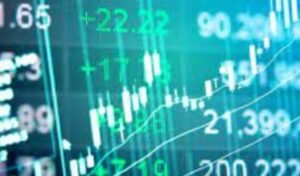$SPY $DIA $GLD
#Investing #StockMarket #FederalReserve #DonaldTrump #JeromePowell #MonetaryPolicy #USPolitics #MarketVolatility #EconomicImpact #CentralBank #InvestorSentiment #FinancialMarkets
Amid a series of unsettling tweets from U.S. President Donald Trump, who has intensified his criticism of Federal Reserve Chairman Jerome Powell, the fabric of investor confidence in U.S. assets has started to show signs of wear. The President’s open disapproval of the Fed’s interest rate policies under Powell’s leadership has sent ripples across the financial markets. Trump’s persistent call for lower interest rates aims to fuel economic growth, but it simultaneously raises fears of undue political influence over what is traditionally an independent central bank. This fraught dynamic between the White House and the Federal Reserve has led to a tangibly nervous atmosphere among investors, prompting a re-evaluation of risk associated with U.S. assets.
In this climate of uncertainty, with no market closure to offer a reprieve or moment of pause, investors have found themselves directly exposed to the volatility stoked by Trump’s confrontational stance. The immediacy and unpredictability of Trump’s commentary via social media platforms only serve to amplify market sensitivity to policy speculation and political rhetoric. This scenario leaves market participants grappling with the prospect of navigating through a landscape where traditional economic indicators might be overshadowed by political developments. The resultant effect has been a noticeable pullback from stocks, as investors seek to mitigate risk amidst the heightened unpredictability.
The implications of Trump’s attacks on Powell and the Federal Reserve extend beyond the immediate market reactions. They suggest a potential long-term realignment of investor strategies, particularly concerning U.S. assets. The ongoing public dispute raises questions about the independence of the Federal Reserve and its ability to set monetary policy free from political pressure. Such uncertainties can undermine confidence in the U.S. financial system’s stability and governance, possibly leading to increased interest in alternative investments or markets perceived as less susceptible to political interference.
Moreover, this situation has broader ramifications for the global economy. The United States plays a pivotal role in the world’s financial system, and shifts in investor sentiment towards U.S. assets can have widespread effects. Emerging markets, for instance, might experience increased volatility as capital flows adjust in response to changing perceptions of risk in the U.S. Furthermore, the dollar’s position as a global reserve currency could be indirectly affected, impacting international trade and monetary relations. In conclusion, President Trump’s continuing critique of Jerome Powell and the Federal Reserve not only shapes domestic investor behavior but also carries significant implications for the global financial landscape.







Comments are closed.